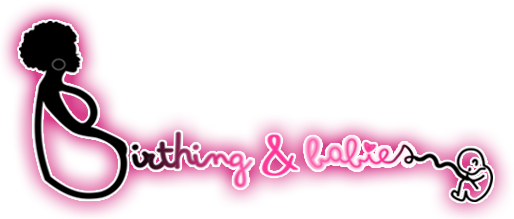Doulas, sometimes referred to as birth companions or labor assistants , provide continuous physical, emotional, and, educational support to women, along with their partner, during pregnancy and provide guidance and support to a pregnant woman during labor. Doulas are additionally advocates for the mother and partner as they see fit, ensuring that the mother knows her rights to make decisions about her baby and her body. These same types of support can be provided after the baby has been born.
BIRTH/LABOR DOULA
A birth doula assists a woman and her family before and during childbirth. She provides non-medical physical, emotional, and educational support during pregnancy and the birthing process. Doulas work with the rest of your birth team, and are there to assist the mom and support her helpers or partners but not to replace them.
Physical Support
Physical support is important because it helps the new mother maintain a sense of control, comfort, and confidence. Examples of physical support provided by your doula may include:
- Soothing with touch through the use of massage/counter pressure
- Positioning
- Breathing
- Mobility/motion
- Assisting with vocalization (sounds, singing, moaning, repeating important words/phrases)
- Creating a calming environment
- Assisting with water therapy (shower, tub)
- Applying heating or cooling pads
- Assisting in walking to and from the bathroom
- Providing food, drinks, ect.
- The birth ball!
- Assistance with breastfeeding/positioning
Physical support can also be provided through a cesarean birth!
Emotional Support
Emotional support helps the mother feel cared for and feel a sense of pride and empowerment during and after birth by making her own decisions. One of the doula’s primary goals is to care for the mother’s emotional health and enhance her ability to have positive birth memories (Gilland, 2010b). Doulas may provide the following types of emotional support to the mother and their partner:
- Continuous presences with the sole focus on supporting mom (and partner!)
- Reassurance
- Verbal encouragement, praise, and feedback
- Focal Points
- Reframe thoughts, fears, and feelings during labor (turn doubtful/negatives statements and words into positive and progressing statements)
- Helping the mother see herself or her situation more positively
- Keeping company
- Showing a caring attitude
- Accepting what the mother wants
- Helping the mother and father work through fears and self-doubt
- Debriefing after the birth
- Non-judgmental listening before, during, and after birth.
Informational Support
Informational support from your doula helps keep the mother and their partner informed about what’s happening during pregnancy and labor, as well as provides them with access to evidence-based information about birth options. Some examples of informational support include:
- Guiding the mother and their partner through labor
- Suggesting techniques in labor, such as breathing, relaxation techniques, movement, and positioning (positioning is important both with and without epidurals)
- Discuss breastfeeding, skin-to-skin contact and bonding after the birth
- Helping them find evidence-based information about different options in pregnancy and childbirth
- Helping explain medical procedures before or as they occur
- Recommended reading lists
- Helping the partner understand what’s going on with their loved one’s labor (for example, interpreting the different sounds the birthing person makes)
- Information support can also be provided for cesarean births. Your doula can recommend VBAC/Cesarean birth support groups, and provide evidence based information on vaginal births after cesarean. Your doula can also provide suggestions for ensuring your surgical birth is as gentle and comfortable as possible for mom and baby.
Advocacy
The most common definitions of advocacy are “pleading the cause of someone” or “speaking on behalf of someone.” Advocacy can also be defined as “supporting an individual or group to gain what they need from the system” or supporting a person in their right to self-determination. Advocacy can mean whatever the mother and doula agree it should mean. Some examples of advocacy your doula may provide during birth could include:
- Encouraging the mother or their partner to ask questions and verbalize their preferences
- Asking the mother what she wants
- Supporting the mother’s decisions
- Amplifying the mother’s voice if she is being dismissed, ignored, or not heard, “Excuse me, she’s trying to tell you something. I wasn’t sure if you heard her or not.”
- Creating space and time for the family so that they can ask questions, gather evidence-based information, and make decisions without feeling pressured
- Facilitating communication between the parents and care providers
- Teaching the mother and partner positive communication techniques
- If the mother is not aware that a provider is about to perform an intervention, the doula could point out what it appears the nurse or physician is about to do, and ask the mother if they have any questions about what is about to happen. For example, if it looks like the provider is about to perform an episiotomy without the person’s consent: “Dr. Smith has scissors in his hand. Do you have any questions about what he is wanting to do with the scissors?”
POSTPARTUM DOULAS
Postpartum doulas provide families information and support on infant feeding, emotional and physical recovery from childbirth, infant soothing, breastfeeding and coping skills for new parents. They might also help with light housework, light meal preparation, and help incorporate an older child into this new experience. Research finds that moms, dads, and babies have an easier time with this transition if a good support team is in place.
